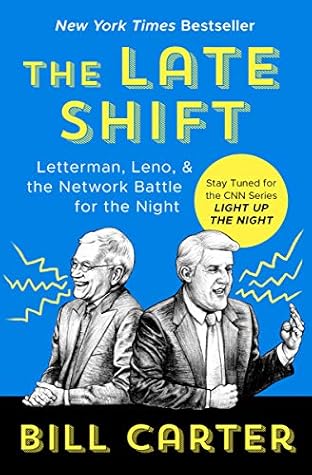More on this book
Kindle Notes & Highlights
Then he recalled a recent bit he’d done on the show about “least-uttered expressions in the English language,” including: “That’s the banjo player’s Porsche,” and “Oh, you’re a Jehovah’s Witness. Come on in!”
What I learned from Jay was you can do almost anything if you have a consistent attitude.” He also took note of how Leno connected himself to the audience. “I get it: We’re all Jay’s hip friends,” Letterman said.
They started calling what they were doing “found humor”; it wasn’t scripted, it was just Dave finding something funny in whatever situation they placed him in.
Letterman took advantage of a moment of confusion to get himself in the building, went up to the board of director’s floor, and then encountered a truly nasty security chief, who refused the basket and snatched his hand away when Letterman offered to shake hands—a moment that forever became known as the “GE handshake.”
The same year, Carson heard that a hot young comic was in town and came to see Leno at the club. He left unimpressed because Leno’s material, while funny, didn’t really seem to contain enough true jokes to work in the five-minute stand-up spots on the “Tonight” show. Jay at this point was doing a lot of long-story jokes about his parents, their inabilities to work remote controls and operate the car.
It wasn’t that Dave wasn’t happy at all, it was just that he had severely narrowed the range of what might make him happy.
The CBS deal stipulated that the network would pay Letterman a penalty fee of an astounding $50 million if he did not get a show in the 11:30 time period. In other words, any deal presented by NBC had to guarantee Letterman the “Tonight” show time period or else pay him an extra $50 million. What CAA was attempting to do was ensure that no NBC deal could truly match the CBS offer if it did not give Dave an 11:30 show.
And David Letterman decided you can either be brave or pretend to be brave, but it’s pretty much the same thing.


